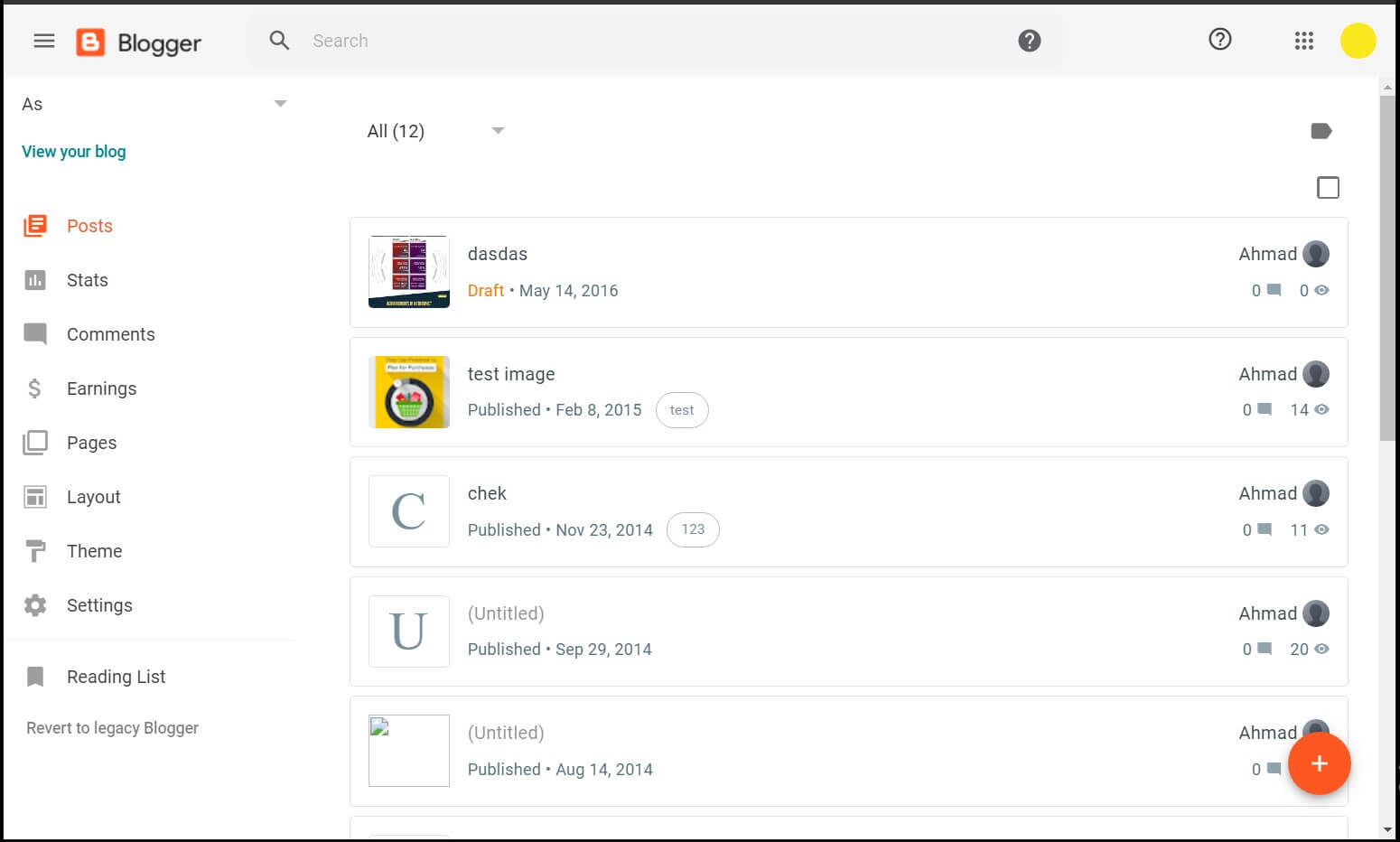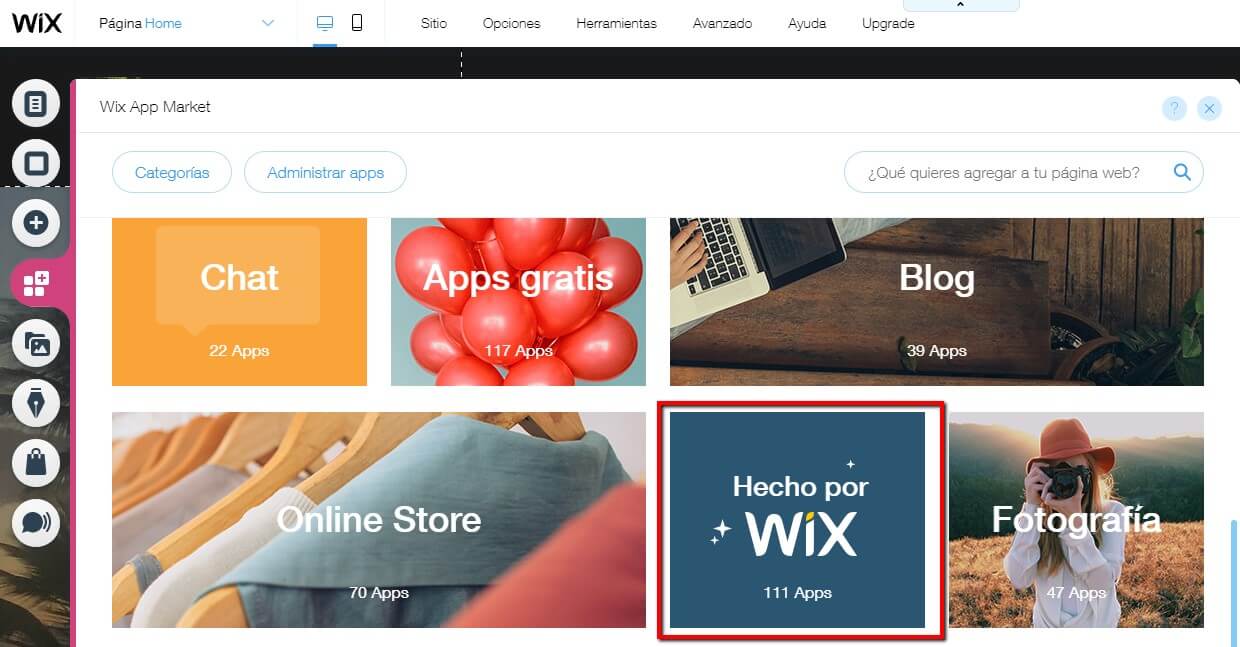How to Start a Successful Book Blog in 5 Easy Steps
Category: Web Design

9 mins read
If you're an avid reader with a passion for sharing your thoughts on the latest books, starting a book blog can be a rewarding and fulfilling endeavor. Not only can you connect with like-minded readers and share your love of literature, but you can also potentially turn your blog into a profitable venture. However, starting a book blog can seem daunting, especially if you're new to the world of blogging. That's where this ultimate guide comes in - we'll walk you through the entire process, from choosing a platform to monetization strategies, so you can turn your book blog dreams into a reality.
In this article:
Part 1. What is a Book Blog
A book blog is a website that is focused on discussing books and literature. The purpose of a book blog is to share information about books, to review them, and to provide recommendations to other readers. Book bloggers often share their thoughts on the latest releases, classic novels, and everything in between.
Book bloggers may be avid readers who simply enjoy sharing their love of books with others, or they may be professionals who have built a following by sharing their opinions and insights on books. Book blogs may cover a wide range of genres, from mysteries and thrillers to romance and young adult fiction.
Some book blogs may also include author interviews, book news, and other literary-related content. Book bloggers often use social media platforms like Twitter, Instagram, and Goodreads to share their blog posts and connect with other readers.
Part 2. Reasons to Start a Book Blog
There are many reasons why someone might want to start a book blog. Here are just a few:
Share your love of books: If you're an avid reader, starting a book blog is a great way to share your love of books with others. You can connect with other readers who share your interests and discuss your favorite books with them.
Build a platform: If you're an aspiring author or book industry professional, starting a book blog can help you build a platform and connect with potential readers. By sharing your insights and opinions on books, you can establish yourself as an authority in the industry.
Improve your writing skills: Writing book reviews and other book-related content can be a great way to improve your writing skills. By practicing your writing on a regular basis, you can become a better writer and develop your voice.
Get free books: Many publishers and authors are happy to send free books to book bloggers in exchange for reviews. If you're looking to build your book collection without breaking the bank, starting a book blog can be a great way to do it.
Join a community: By starting a book blog, you'll be joining a vibrant community of readers and bloggers who share your interests. You can connect with other bloggers, participate in reading challenges, and attend book events.
Part 3. How to Start a Book Blog
If you're interested in starting a book blog, here are some steps you can follow:
Step 1. Choose a Platform
When creating a book blog, it's crucial to select the right platform. Several options are available, each with its own advantages and disadvantages. It's essential to consider some factors when choosing a platform for your book blog. Firstly, you'll want a platform that is user-friendly, especially if you're new to blogging. Secondly, you'll want a platform that allows you to customize the look and feel of your blog to reflect your personality and branding. You'll also want to consider the cost of the platform and choose one that fits your budget. Additionally, SEO optimization, social media integration, analytics, and customer support are all essential factors to consider. Some popular blogging platforms for book bloggers include WordPress, Blogger, and Wix. Each of these platforms has its own strengths and weaknesses, making it essential to do your research and choose the one that best fits your needs and goals. The following will introduce several popular blogging platforms, and you can create your own book blog by choosing the ideal platform.
WordPress

WordPress is one of the most popular blogging platforms out there, and for good reason. It's a versatile platform that allows you to create a blog that is both functional and visually appealing. WordPress offers a wide range of customization options, such as themes and plugins, that allow you to tailor your blog to your needs. Additionally, WordPress has a large community of users and developers who can provide support and resources. WordPress is also optimized for SEO and is free to use.
Blogger

Blogger is a free blogging platform owned by Google. It's a simple and easy-to-use platform that is perfect for beginners. Blogger offers several customization options, including templates and the ability to add your own custom CSS. It's also optimized for SEO and integrates easily with Google Analytics. One downside of Blogger is that it doesn't offer as many customization options as other platforms, and it can be difficult to move your blog to another platform if you decide to switch in the future.
Wix

Wix is a website builder that allows you to create a blog using drag-and-drop tools. It's a great option for those who want to create a blog without having to know how to code. Wix offers a range of customizable templates that allow you to create a blog that looks professional and polished. It also offers a range of SEO tools and analytics features to help you track your blog's performance. One downside of Wix is that it can be more expensive than other platforms, especially if you want to use certain features like e-commerce.
Squarespace

Squarespace is another website builder that allows you to create a blog using drag-and-drop tools. It's a great option for those who want a blog that looks professional and high-end. Squarespace offers a range of customizable templates that allow you to create a blog that is both visually appealing and functional. It also offers a range of SEO tools and analytics features to help you track your blog's performance. One downside of Squarespace is that it can be more expensive than other platforms, and it can be more difficult to use than other options.
Ultimately, the platform you choose will depend on your needs and goals for your blog. If you want a platform that is easy to use and free, Blogger or WordPress may be the best option for you. If you want a platform that offers a range of customization options and SEO tools, Wix or Squarespace may be a better choice. It's important to do your research and choose the platform that best fits your needs and goals for your book blog.
Step 2. Choose a Niche
Once you've chosen a platform, you'll need to decide on a niche for your blog. Will you be reviewing books in a particular genre, or will you be covering a wide range of books? Will you be focusing on new releases, or will you be reviewing classic literature? Choosing a niche will help you focus your content and attract readers who are interested in the same types of books as you.
Choosing the right niche is crucial for building a successful and engaging platform. The niche you choose will shape your blog's direction, audience, and the type of content you create. Here are some tips to help you choose a niche for your book blog:
Identify your interests and passions
Make a list of the topics that you enjoy reading and talking about, such as specific genres, authors, or book-related topics. This will help you narrow down your focus and choose a niche that aligns with your interests. Your passion and enthusiasm for the niche will reflect in your writing, and your readers will appreciate it.
Analyze the market demand for your chosen niche
Look for topics that have a large audience and high engagement rates. Research using tools like Google Trends, Amazon Bestsellers, and social media analytics. It's essential to choose a niche that has a large enough audience to sustain your blog in the long term.
Assess your competition and consider your expertise
Check out other book blogs in your niche and analyze their content, audience, and engagement levels. Look for gaps or areas where you can differentiate your blog and provide unique value to your audience. If you have any particular expertise or experience in a specific area, it can be an excellent starting point for your book blog niche. It will allow you to provide in-depth insights and establish credibility with your audience.
Remember, choosing a niche for your book blog is a long-term commitment, so it's essential to choose a topic that aligns with your passions, can attract a significant audience, and provides value to your readers. With the right niche, you can establish yourself as an authority in your field and build a loyal following.
Step 3. Register Your Domain Name
Registering a domain name is an important step in creating a successful book blog. It not only helps your readers find your blog easily but also adds a professional touch to your online presence. Here's how you can register your domain name:
Firstly, choose a domain name that reflects your blog's topic or brand. Use domain name generators like Godaddy or Panabee to help you come up with ideas. Then, check its availability using a domain registrar. If it's already taken, the registrar will suggest alternative options. Choose a domain extension that aligns with your blog's purpose or audience. The .com extension is the most popular and widely recognized, but other extensions may be more suitable for specific niches.
Once you've found an available domain name and extension, register it with a domain registrar. This process typically takes only a few minutes and requires you to provide your contact information and payment details. After registering, you'll need to connect your domain to your blog. Depending on the platform you're using, the process may differ. Most blogging platforms have tutorials or support articles that explain how to connect your domain name to your blog. Finally, remember to renew your domain registration annually to keep your domain name.
By following these steps, you can easily register your domain name and create a professional and branded online presence for your book blog. Remember to choose a memorable and unique domain name, and connect it to your blog to make it easy for your readers to find and remember your blog.
Step 4. Start Creating Content
Creating content for a book blog is essential to engage your readers and keep them coming back for more. To create effective content, start by brainstorming ideas and researching extensively on the topic you want to write about. Write an outline to organize your thoughts and ensure your post has a clear structure. Use clear, concise language and avoid jargon or complex terminology. Edit and revise your post before publishing it on your blog and promoting it on your social media channels.
The content of your book blog is the backbone of your blog. It is what keeps readers coming back and what helps you establish a loyal following. Good content provides valuable information, insights, and entertainment to your readers. By creating quality content, you can establish yourself as an authority in your niche and build a community of engaged readers who share your love of books.
Step 5. Promote Your Blog
Promoting your book blog is a crucial step in building a community of engaged readers. It helps you reach a wider audience and attract new followers to your blog. There are several strategies you can use to promote your blog, including social media marketing and community engagement.
One effective way to promote your blog is by sharing your posts on social media platforms like Twitter, Instagram, and Goodreads. Use relevant hashtags to increase visibility and reach a wider audience. For example, if you're writing a book review, include hashtags related to the book's genre or author. Use eye-catching images and captions to grab your audience's attention and entice them to read your post.
Another effective strategy is to participate in book-related communities and forums. Join groups on Facebook or Goodreads related to your niche, and engage with other members by sharing your thoughts and opinions. You can also connect with other book bloggers and collaborate on projects, such as blog tours or reading challenges. This not only helps you promote your blog but also helps you establish relationships with other bloggers and readers.
It's important to remember that promoting your blog is an ongoing process. Consistency is key, so make sure to share your posts regularly and engage with your audience on a regular basis. By doing so, you can establish yourself as a trusted source of information and build a loyal community of readers who share your love of books.
Step 6: Monetize Your Blog
Monetizing a book blog is a great way to earn income and support your blogging efforts, but it requires careful planning and execution to be successful. Here are some ways to monetize your book blog:
- Affiliate Marketing: Affiliate marketing is a popular way to monetize a book blog. By partnering with book retailers, you can earn a commission for every book purchased through your unique affiliate links. Amazon Associates is a popular affiliate program that many book bloggers use. When you recommend a book on your blog, you can include an affiliate link to the book on Amazon. If a reader clicks on your link and purchases the book, you earn a commission.
- Display Advertising: Display advertising involves placing ads on your blog and earning revenue based on clicks or impressions. To get started, you can join an ad network like Google AdSense or Mediavine. Ad networks will place ads on your blog and handle payment and tracking for you. Display advertising can be a good way to earn passive income, but it can also be intrusive for readers. Make sure to balance the use of ads with the overall user experience of your blog.
- Sponsored Content: Sponsored content involves working with brands or publishers to create content that promotes their products or services. For book bloggers, this can include book reviews, author interviews, or other book-related content. When working with sponsors, it's important to maintain your integrity and be transparent with your readers. Disclose any sponsored content clearly and only work with sponsors whose products or services you believe in.
- Digital Products: Creating and selling digital products can be a great way to monetize your book blog. You can create and sell e-books, reading guides, or printable book lists. Digital products can be a great way to provide value to your readers while also earning income. Make sure to create high-quality products that are relevant to your audience.
- Donations or Membership Programs: Another way to monetize your blog is to ask your readers for donations or offer a membership program with exclusive content or perks. Donations can be a good way to earn income from readers who appreciate your content and want to support your efforts. Membership programs can provide additional value to your readers and can be a good way to build a community around your blog.
- Freelance Writing: Finally, a book blog can be a great way to showcase your writing skills and attract freelance writing opportunities. You can use your blog to showcase your writing style and expertise, and pitch to book-related publications or websites. Freelance writing can provide additional income and exposure for your blog.
When monetizing your blog, it's important to remember that your readers should always come first. Monetization strategies should be transparent, relevant, and provide value to your audience. Make sure to maintain the integrity of your blog and only work with sponsors or partners that align with your values and goals.
Conclusion
Starting a book blog can be a rewarding and fulfilling experience for avid readers and aspiring writers alike. By sharing your love of books and connecting with other readers and bloggers, you can build a community and establish yourself as an authority in the industry. By following these steps and putting in the time and effort, you can start a successful book blog that reflects your personality and interests, and helps you achieve your goals.





















